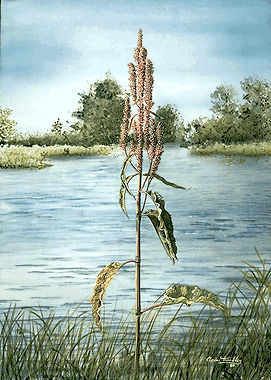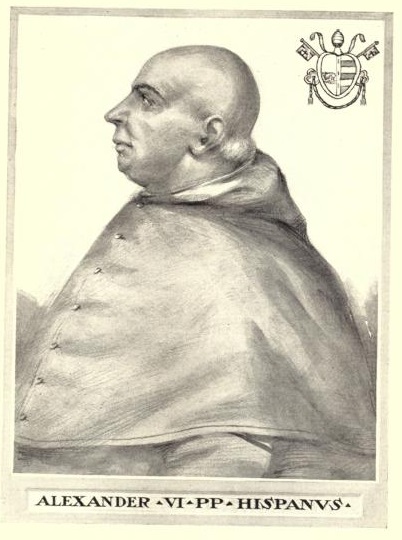Browse "Things"
-
Article
Distance Learning
Distance education or distance learning commonly refers to formal education offerings where instructor and learner are physically separated and where learners can study appropriately designed materials at a place, time and pace of their own choosing.
"https://development.thecanadianencyclopedia.ca/images/tce_placeholder.jpg?v=e9dca980c9bdb3aa11e832e7ea94f5d9" // resources/views/front/categories/view.blade.php
https://development.thecanadianencyclopedia.ca/images/tce_placeholder.jpg?v=e9dca980c9bdb3aa11e832e7ea94f5d9
-
Article
Distilling Industry
The distilling industry is that part of the food and beverage industries engaged in clarifying, flavouring, blending and aging alcohol to make potable spirits (eg, brandies, grain spirits, rum) and establishments which manufacture ethyl alcohol, whether they are or are not used in potable spirits.
"https://development.thecanadianencyclopedia.ca/images/tce_placeholder.jpg?v=e9dca980c9bdb3aa11e832e7ea94f5d9" // resources/views/front/categories/view.blade.php
https://development.thecanadianencyclopedia.ca/images/tce_placeholder.jpg?v=e9dca980c9bdb3aa11e832e7ea94f5d9
-
Macleans
Distinctive Brains of Psychopaths
This article was originally published in Maclean’s magazine on January 22, 1996. Partner content is not updated. In British author Philip Kerr's futuristic novel, A Philosophical Investigation, scientists can determine whether a man is prone to violent criminal behavior by administering a brain scan to detect an abnormality.
"https://development.thecanadianencyclopedia.ca/images/tce_placeholder.jpg?v=e9dca980c9bdb3aa11e832e7ea94f5d9" // resources/views/front/categories/view.blade.php
https://development.thecanadianencyclopedia.ca/images/tce_placeholder.jpg?v=e9dca980c9bdb3aa11e832e7ea94f5d9
-
Article
Distribution of Powers
Canada is a federal state. This means that the powers and duties of government are split between two levels. There is one national (central, or federal) government and many smaller regional (provincial) ones. The areas of jurisdiction for each level were first outlined at the Quebec Conference in 1864. (See Quebec Resolutions.) They are enshrined in the Constitution Act, 1867. They have been a source of debate and tension between the provinces and the federal government since Confederation. (See Federal-Provincial Relations.) Despite that, this part of the Constitution has remained largely unchanged since then.
"https://d2ttikhf7xbzbs.cloudfront.net/media/media/1eda021b-6ecb-4d9c-99cc-7cc3a1cee783.jpg" // resources/views/front/categories/view.blade.php
https://d2ttikhf7xbzbs.cloudfront.net/media/media/1eda021b-6ecb-4d9c-99cc-7cc3a1cee783.jpg
-
Article
Diving
The sport of diving can be traced back to 400 BC through pictures on Egyptian and Roman vases. Plain diving was practised from cliffs to the oceans during the 8th to 10th centuries by Vikings in Sweden and later in the 1770s by Indians in Acapulco, Mexico.
"https://d2ttikhf7xbzbs.cloudfront.net/media/media/755f0b85-942e-4d31-9cc1-16a2c637ffb9.jpg" // resources/views/front/categories/view.blade.php
https://d2ttikhf7xbzbs.cloudfront.net/media/media/755f0b85-942e-4d31-9cc1-16a2c637ffb9.jpg
-
Article
Divorce in Canada
Marriages in Canada can be dissolved through annulment or divorce, both of which involve a judicial decree.
"https://d2ttikhf7xbzbs.cloudfront.net/media/media/18e234be-ab36-4e5d-aae3-beb23bb8d8b7.jpg" // resources/views/front/categories/view.blade.php
https://d2ttikhf7xbzbs.cloudfront.net/media/media/18e234be-ab36-4e5d-aae3-beb23bb8d8b7.jpg
-
Article
Dobsonfly
The dobsonfly is a large (100-140 mm), soft-bodied freshwater insect of order Megaloptera, family Corydalidae; smaller forms are called fishflies.
"https://development.thecanadianencyclopedia.ca/images/tce_placeholder.jpg?v=e9dca980c9bdb3aa11e832e7ea94f5d9" // resources/views/front/categories/view.blade.php
https://development.thecanadianencyclopedia.ca/images/tce_placeholder.jpg?v=e9dca980c9bdb3aa11e832e7ea94f5d9
-
Article
Dock
Dock, herbaceous plant of genus Rumex, family Polygonaceae (buckwheat); most docks are perennial.
"https://d2ttikhf7xbzbs.cloudfront.net/media/media/455358cb-1299-4193-8369-04e4d7853231.jpg" // resources/views/front/categories/view.blade.php
https://d2ttikhf7xbzbs.cloudfront.net/media/media/455358cb-1299-4193-8369-04e4d7853231.jpg
-
Macleans
Doctor Averts Euthanasia Trial
This article was originally published in Maclean’s magazine on March 9, 1998. Partner content is not updated. For someone facing the prospect of being sent to trial on a charge of murder, Nancy Morrison appeared remarkably calm. As she stood to one side of a packed courtroom in Halifax last Friday morning, the 42-year-old respirologist spoke amiably with one of her defence lawyers.
"https://development.thecanadianencyclopedia.ca/images/tce_placeholder.jpg?v=e9dca980c9bdb3aa11e832e7ea94f5d9" // resources/views/front/categories/view.blade.php
https://development.thecanadianencyclopedia.ca/images/tce_placeholder.jpg?v=e9dca980c9bdb3aa11e832e7ea94f5d9
-
Macleans
Doctor Charged in Patient's Death
This article was originally published in Maclean’s magazine on May 19, 1997. Partner content is not updated. Late last September, Paul Millss family was deeply distressed over his battle with throat cancer in a Moncton, N.B., hospital. In the hope that more advanced treatment might help, they transferred him to the Queen Elizabeth II Health Sciences Centre in Halifax.
"https://development.thecanadianencyclopedia.ca/images/tce_placeholder.jpg?v=e9dca980c9bdb3aa11e832e7ea94f5d9" // resources/views/front/categories/view.blade.php
https://development.thecanadianencyclopedia.ca/images/tce_placeholder.jpg?v=e9dca980c9bdb3aa11e832e7ea94f5d9
-
Article
Doctrine of Discovery
The Doctrine of Discovery refers to a set of international legal principles largely developed between the 15th and 16th centuries. At its core, the Doctrine maintains that upon discovery of new lands, European nations could acquire the territory and sovereignty over it. However, the territory had to be unknown to Europeans, unoccupied by a Christian prince or inhabited by people Europeans considered “uncivilized.” It serves as the basis of sovereignty for settler nations, such as Canada and the United States. Settler nations are countries with an Indigenous population, but whose government and cultural norms were established by people who moved there from other countries. In addition, the Doctrine created conditions for the legal, political and economic dispossession and subjugation of Indigenous peoples globally.
"https://d2ttikhf7xbzbs.cloudfront.net/DoctrineofDiscovery/Pope_Alexander-VI.jpg" // resources/views/front/categories/view.blade.php
https://d2ttikhf7xbzbs.cloudfront.net/DoctrineofDiscovery/Pope_Alexander-VI.jpg
-
Article
Document Balfour Report 1926
Selected text of the Balfour Report:The Committee are of opinion that nothing would be gained by attempting to lay down a Constitution for the British Empire.
"https://development.thecanadianencyclopedia.ca/images/tce_placeholder.jpg?v=e9dca980c9bdb3aa11e832e7ea94f5d9" // resources/views/front/categories/view.blade.php
https://development.thecanadianencyclopedia.ca/images/tce_placeholder.jpg?v=e9dca980c9bdb3aa11e832e7ea94f5d9
-
Article
Documenting the First World War
The First World War forever changed Canada. Some 630,000 Canadians enlisted from a nation of not yet eight million. More than 66,000 were killed. As the casualties mounted on the Western Front, an expatriate Canadian, Sir Max Aitken (Lord Beaverbrook), organized a program to document Canada’s war effort through art, photography and film. This collection of war art, made both in an official capacity and by soldiers themselves, was another method of forging a legacy of Canada’s war effort.
"https://d2ttikhf7xbzbs.cloudfront.net/media/media/df0d7820-063b-443b-b82a-f67dad7deea0.jpg" // resources/views/front/categories/view.blade.php
https://d2ttikhf7xbzbs.cloudfront.net/media/media/df0d7820-063b-443b-b82a-f67dad7deea0.jpg
-
Article
Documenting the Second World War
When Canada declared war on Germany on 10 September 1939, tens of thousands of Canadians enlisted to serve in the army, navy, air force and supporting services. The military scrambled to buy equipment, train recruits and prepare for war. Little thought was given, at first, to documenting the war effort. By 1940, however, the military was recruiting historians, most notably Charles Stacey, to collect records and write accounts of Canadian operations. In the following years, artists, photographers and filmmakers also served with the various branches of the armed forces. Today, their diligent work provides a rich visual and written catalogue of Canada’s history in the Second World War.
"https://d2ttikhf7xbzbs.cloudfront.net/media/media/9b070ac4-e744-4afa-a3fc-e60098f649e3.jpg" // resources/views/front/categories/view.blade.php
https://d2ttikhf7xbzbs.cloudfront.net/media/media/9b070ac4-e744-4afa-a3fc-e60098f649e3.jpg
-
Article
Dofasco Inc
Dofasco Inc, a Canadian-owned, non-union company, has its principal steel mills and head office in HAMILTON, Ontario. Dofasco is Canada's second largest steel producer. In 1996 Dofasco produced 3.7 million tons of steel and had sales of $2.8 billion, and the company employed about 7000 people.
"https://development.thecanadianencyclopedia.ca/images/tce_placeholder.jpg?v=e9dca980c9bdb3aa11e832e7ea94f5d9" // resources/views/front/categories/view.blade.php
https://development.thecanadianencyclopedia.ca/images/tce_placeholder.jpg?v=e9dca980c9bdb3aa11e832e7ea94f5d9
